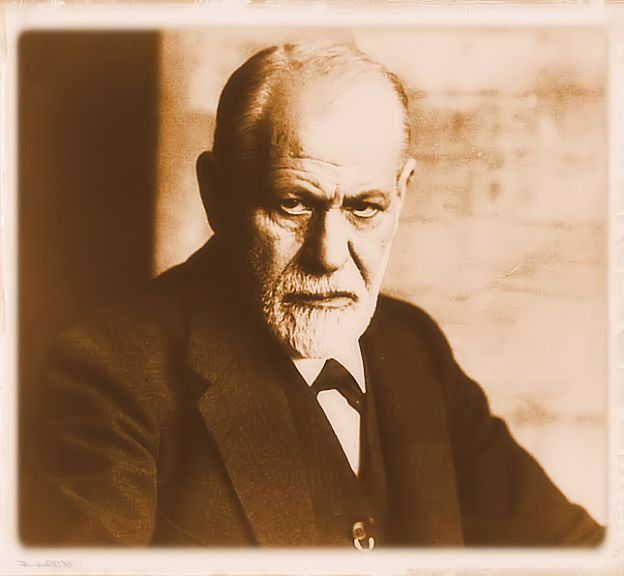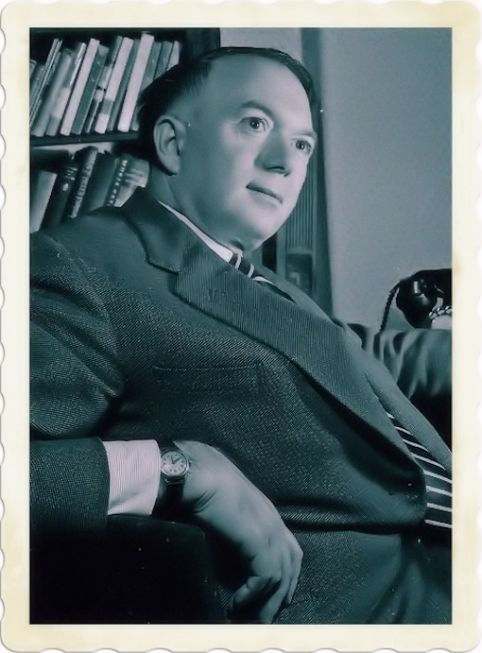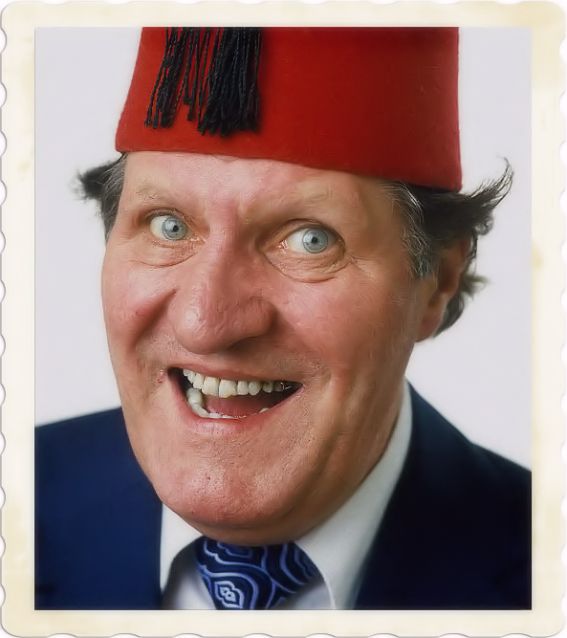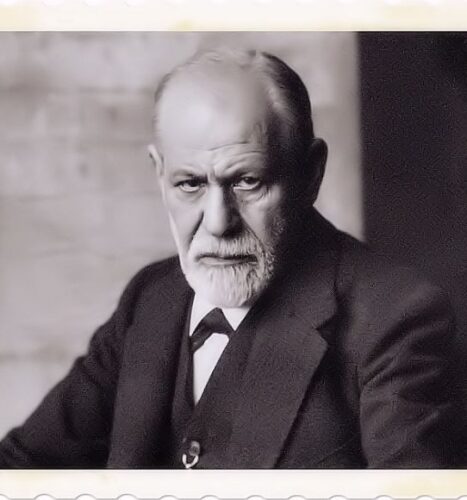
Freud on humor and jokes, a text about humor and jokes starting from the works by Sigmund Freud and continuing with quotes and thoughts by Mikes, Brown and Cooper. Last but not least, as you can see from Freud’s portrait, you must always keep well in mind that humor is a very serious thing.
Now humor is a means of obtaining pleasure in spite of the painful emotions involved; acts as a substitute for the emergence of these emotions; he puts himself in their place… at the price of not releasing an emotion: it comes from saving in the expenditure of emotion.
Sigmund Freud
Heine is said to have created the last blasphemous joke on his deathbed. When a priest friend reminded him of divine mercy and gave him the hope that God would forgive him his faults, he is said to have replied: ” Bien sûr qu’il me pardonnera: c’est son métier.”… Thus in the dying , which lies there without strength, the awareness arises that he had created God and that he had given him a strength so as to make use of him when the occasion arose. The supposedly created being revealed himself, just before his annihilation, as the creator.
Sigmund Freud
Two Jews were talking about baths. “I take a bath every year,” said one of them, “whether I need it or not.”
Sigmund Freud
A doctor, moving away from the bedside of a lady, said to her husband, with a handshake: “I don’t like her appearance”. “I haven’t liked her looks for a long time,” her husband agreed quickly.
Sigmund Freud
The difference between full professors and extraordinary professors is that ordinary professors do nothing extraordinary, and extraordinary professors do nothing good.
Sigmund Freud
An individual who became poor borrowed 25 florins from an acquaintance. The same day the creditor meets him again at the restaurant, over a plate of salmon with mayonnaise. “But how? You ask me to borrow money and then order some salmon mayonnaise for you? That’s what you used my money for. “I don’t understand you,” replied the defaulting debtor, “if I don’t have the money, I can’t eat salmon with mayonnaise, and if I have some money, I mustn’t eat it. So when will I be able to eat salmon with mayonnaise?”.
Sigmund Freud

Jokes and Their Relation to the Unconscious (Der Witz und seine Beziehung zum Unbewussten) is a book written by Sigmund Freud, the famous psychoanalyst, and was first published in 1905. In this book, Freud explores the nature and significance of jokes, delving into their psychological underpinnings and their connection to the unconscious mind.
Already in the Interpretation of dreams of the 1900s there are numerous references to witticisms, puns and laughter as an emotional discharge with a catarchic function. Continuing with his various researches on the psyche, unconscious activity and sexual theories, Freud goes so far as to compare the technique of witticisms with dream work, and the results of this investigation are found in his book on the motto of spirit and its relationship with the unconscious of 1905 (Der Witz und seine Beziehung zum Unbewussten), and here his reflection takes on a structured dimension, such as to make the witticism one of the fundamental modalities of the presence of the unconscious in the portion aware of mental life.
Freud begins by suggesting that jokes serve as a social and psychological outlet, allowing individuals to express thoughts and emotions that might otherwise be repressed or unacceptable. He argues that jokes often involve the release of pent-up psychic energy, providing temporary relief from tension and inhibitions.
Freud claims that “our enjoyment of the joke” indicates what is being repressed in more serious talk. Freud argues that the success of the joke depends upon a psychic economy, whereby the joke allows one to overcome inhibitions.
According to Freud, understanding of joke technique is essential for understanding jokes and their relation to the unconscious, however, these techniques are what make a joke a joke. Freud also noted that the listener laughing really heartily at the joke will typically not be in the mood for investigating its technique.
The book is divided into three sections: “analytic,” “synthetic” and “theoretical.” The book’s first section includes a discussion on the techniques and tendencies of jokes. The second section includes a discussion on the psychological origins and motives of the joke and the joke as a social process. The book’s final section discusses the joke’s relation to dreams and the Unconscious.
Freud analyzes various types of jokes, including innocent wordplay, obscene humor, and wit. He examines the mechanisms behind joke formation and enjoyment, such as condensation (combining multiple meanings into a single expression) and displacement (redirecting taboo thoughts or desires onto more acceptable targets). According to Freud, jokes often rely on the violation of social norms and the release of repressed desires, making them a form of disguised wish fulfillment.
Furthermore, Freud explores the relationship between humor and the unconscious mind. He suggests that jokes often contain hidden meanings and symbolism that reflect unconscious desires, conflicts, and fantasies. By analyzing the underlying content of jokes, Freud believed it was possible to gain insights into an individual’s psyche.
Overall, “Jokes and Their Relation to the Unconscious” is a pioneering work that explores the psychological aspects of humor. Freud’s analysis provides a deeper understanding of the mechanisms behind joke formation, their social functions, and their connection to the hidden workings of the human mind.
The essay on Humor of 1927 instead deals with an aspect that had been confined to a few pages in the last chapter of the text on the Witz. The pleasure in saving expenditure was identified in sentiment, with the suspension of affective participation in facts or phenomena that should have caused great affliction.
It was then a question of a defense mechanism, superior to repression as it triumphed over automatism. In the brief essay Freud reiterates the importance of that “noble”, grandiose character of humour, which is explained in terms of a triumph of narcissism, in the victorious affirmation of the ego’s invulnerability to external attacks, thus demonstrating its proud closeness to Jewish humor.

A great author like Pirandello had also discovered that humor is born from the feeling of the opposite and writers like Mark Twain or J. Swift knew all too well that humor is born out of pain and constitutes, to quote Freud, both a kind of very high sophisticated psychic methodology and one of the best literary techniques to have fun and rebalance, at least on paper, the sad fate of our human destiny.
Carl William Brown
Since every religion was able to make me laugh, I decided that after all humour might have become my own true religion.
Carl William Brown
I don’t believe in God, but I have got a magical sense of humour.
Carl William Brown
Mark Twain argued that humor is born of pain, that’s why the true philosopher can only be a humorist.
Carl William Brown
All art is quite useless and so it is the universe.
Carl William Brown
The world is destined to become even more comical; that is why humorists are the real precursors of our future civilization.
Carl William Brown
Jokes are better than war. Even the most aggressive jokes are better than the least aggressive wars. Even the longest jokes are better than the shortest wars.
George Mikes
A humorist is a writer, like the rest. He may make superficial fun on manners, he may crack jokes on the obvious or again he may be a serious and profound critic of society.
George Mikes
A philosopher with a sense of humour will laugh at a joke instead of performing a post mortem on it; and a philosopher will not be able – however competent he may be otherwise – to teach us a lot about the sense of humour if he himself lacks one.
George Mikes
The Oxford English Dictionary defines a joke as a thing said or done to excite laughter; witticism, jest; ridiculous circumstance: Nuttall’s says: a jest to raise laughs: something witty or sportive; something not serious or in earnest. One could argue that these definitions are
not perfect. But as (a) everybody can argue that no definition is perfect, and (b) we all know what a joke is – I shall not waste too many words on this point.
George Mikes
It is obvious that inventing a joke is a creative activity which should come under the definition of art. Telling a joke is a performance, it is performing art.
George Mikes
The context is the playing surface of the joke; a background, a condition, a set of limiting facts. In Humour, as in usage generally, context may be verbally linguistically, in the understood situation or the general cultural assumption.
Walter Nash
First of all, a joke can put things, definitions, ideas in a nutshell … Secondly, jokes can elucidate things, often more revealingly than long and complicated scientific definitions … A joke or anecdote can prick pomposity and show up cant and hypocrisy better than any other
method.
George Mikes
Or take the political joke – another case where the joke, while it must be funny in its own right, has a deeper, more significant meaning… Under oppressive regimes jokes replace the press, public debates, parliament and even private discussion – but they are better
that any of these… The joke is a flash of lightning, athrust with a rapier. It does not put forward the “argument” that the tyrant is possibly mistaken: it makes a fool of him, pricks the pomposity, brings him down to a human level and proves that he is weak and will one day come crashing down. Every joke told weakens the tyrant, every laugh at his expense is a nail in his coffin. That is why tyrants and their henchmen cannot possibly have a sense of humour, any more than an archbishop can be an atheist or a monarch a republican. No one living in the free atmosphere of a western democracy can imagine the liberating and invigorating effect these jokes have as they spread from mouth to mouth.
George Mikes
We are hit by the joke but, as psychoanalysts put it, our ego regresses, gives up some control and for a moment relaxes its jealous, guarding position.
George Mikes
Understatement springs from the English character: and having become second nature it also contributes now to the formation or development of the English character. As I said, it is not only a joke, not always a joke and, occasionally, it is very much the opposite of a
joke … The whole rhythm of life in England is understatement; their suppression of emotion is understatement; their underreaction to everything, the polite word instead of the expletive (when the latter would help so much more to clean the air), the stiff upper lip, the very
climate with its absence of extremes, all these are understatement.
George Mikes

Here are now some other examples of very short jokes by a famous English comedian and then a longer one:
I told my wife she should embrace her mistakes. She gave me a hug.
Tommy Cooper
I went to buy some camouflage trousers, but I couldn’t find any.
Tommy Cooper
I said to the waiter, ‘This coffee tastes like mud.’ He said, ‘Yes, sir, it’s fresh ground.
Tommy Cooper
I haven’t slept for ten days. Because that would be too long.
Tommy Cooper
I’ve been on a diet for two weeks, and all I’ve lost is fourteen days.
Tommy Cooper
I told the doctor I broke my leg in two places. He told me to stop going to those places.
Tommy Cooper
One day a waiter fell sick and was rushed to hospital. He was lying on the table in great pain. When a doctor passed by the waiter said: “Hey doctor, could you do something for my pain?” The doctor said: “I’m sorry this isn’t my table.”
Tommy Cooper
I said to the waiter: “There is no chicken in this chicken soup.” He said: “And there’s no horse in the horseradish either.
Tommy Cooper
I saw an old tramp walking down the street wearing one shoe. I said: “Hey, you lost your shoe.” He said: “No I found one.”
Tommy Cooper
Electricity is a wonderful thing. Do you realise that of we didn’t have electricity we’d be watching television by candle light?
Tommy Cooper
A newly-appointed school inspector was assigned to a class in one of the local kindergartens and was introduced to the class by the teacher.
She told the class, “Let’s show the inspector just how clever you are by allowing him to ask you a question.”
The inspector reasoned that since this is a kindergarten started by a church, so he asked a biblical question: “Class, who broke down the wall of Jericho?”
For a full minute there was absolute silence. The children all just stared at him blankly. Eventually, little Alec raised his hand and was asked to speak.
Little Alec stood up and said: “Sir, I do not know who broke down the wall of Jericho, but I can assure you that it wasn’t me.”
Of course the inspector was shocked by the answer and the lack of knowledge of the famous Bible story and he looked at the teacher for an explanation.
Realizing that he was perturbed, the teacher said: “Well, I’ve known Alec since the beginning of the year, and I believe that if he says that he didn’t do it, then he didn’t do it.”
The inspector was even more shocked at this and stormed down to the principal’s office and told him what happened, to which the principal replied: “I don’t know the boy, but I socialize every now and then with his teacher, and I believe her. If she feels that the boy is innocent, then he must be innocent.”
The inspector could not believe what he was hearing. He grabbed the phone on the principal’s desk and in a rage, wanted to dial PM’s office, but he paused and decided this could be a bit of an overreaction. So instead he phoned his old childhood friend – Minister of Education. The inspector rattled off the entire occurrence to him and asked him what he thought of the state of education in kindergartens.
Education Minister sighed heavily and replied: “I don’t know the boy, the teacher or the principal, but just get three quotations and get the wall fixed lah!”
To make a good healthily laugh you can also visit the following pages!
Three men in a boat by Jerome K. Jerome
April fools day or All fools day
George Mikes e l’umorismo (My Ko-fi Shop)
Il motto di spirito di Sigmund Freud
For more information Visit www.daimon.org/hum

